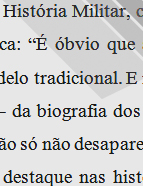

................................
Among the figures who excelled in Portugal's military culture in the first half of the 20th century, General Luís Augusto Ferreira Martins (1875–1967) stands out for his extensive military and scientific career. He is best known for his masterpiece, História do Exército Português [History of the Portuguese Army] (1945), a true milestone that remains a valuable reference. As Deputy Chief of Staff for the Portuguese Expeditionary Corps sent to Flanders (1917–1918), he authored works such as Portugal na Grande Guerra [Portugal in the Great War] (1934–1935), Uma história da acção dos portugueses na Grande Guerra [A History of the Actions of the Portuguese in the Great War ] (1935), and Glórias e martírios da colonização portuguesa [Glories and Martyrdoms of Portuguese Colonisation] (1939).
Colonel Belisário Pimenta (1879–1969) studied at the Military Academy and the Faculty of Mathematics at the University of Coimbra. After leaving political life, he dedicated himself to historical research and literary studies. An artistic contributor to the Diário de Lisboa and the Grande Enciclopédia Portuguesa e Brasileira [Great Portuguese and Brazilian Encyclopaedia] (1935–1957), he was also a member of the Portuguese Academy of History. Among his bibliography, still partially unpublished, are works such as Esboço da evolução das ideias militares em Portugal [Outline of the Evolution of Military Ideas in Portugal] (1942) and O Marechal Saldanha, sua vida militar, suas ideias e métodos [Marshal Saldanha: His m ilitary l ife, i deas, and m ethods] (1957).
Lieutenant Colonel of Artillery Augusto Botelho da Costa Veiga (1881–1965) was a renowned academic to whom Portuguese history and culture owe much. Alongside his military career, he gained renown as a mediaeval ist in the tradition of Alexandre Herculano and served as director of the National Library (1928–1950), which greatly facilitated his historical research. His works include Estudos de História Militar Portuguesa [Studies on Portuguese Military History] (1936, 1939).
This work is financed by national funds through FCT - Foundation for Science and Technology, I.P, in the scope of the projects UIDB/04311/2020 and UIDP/04311/2020.
